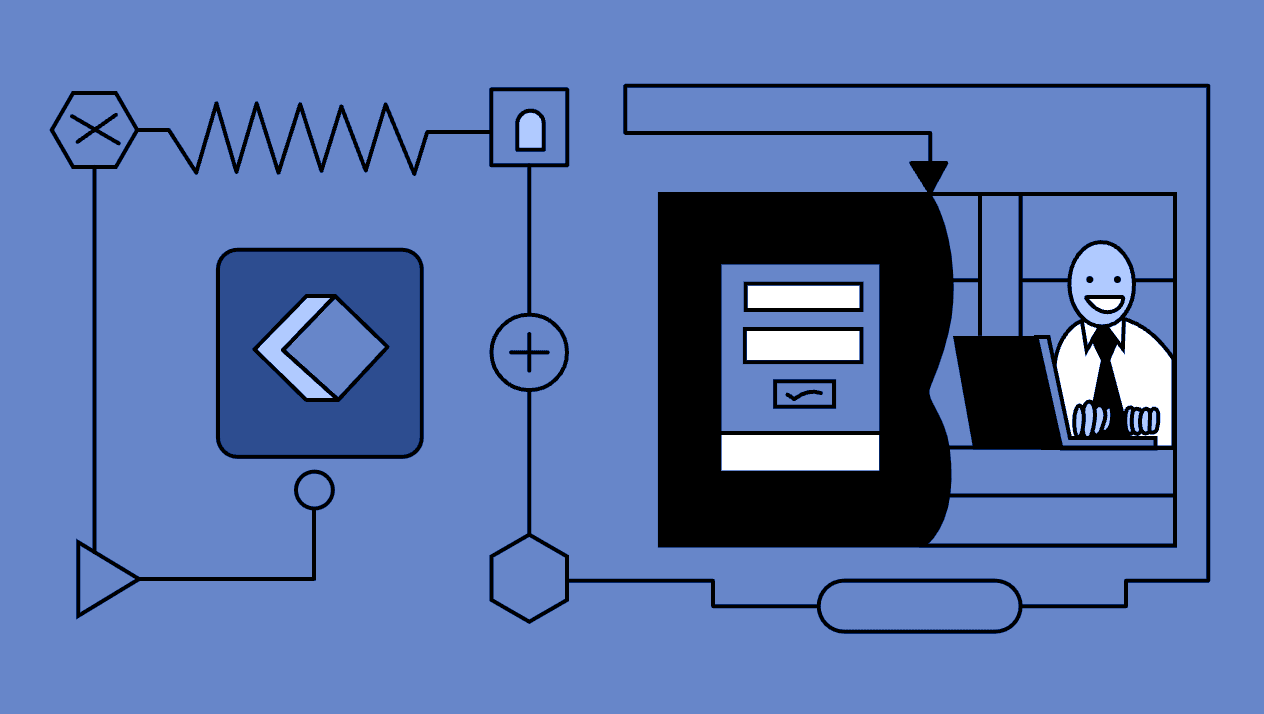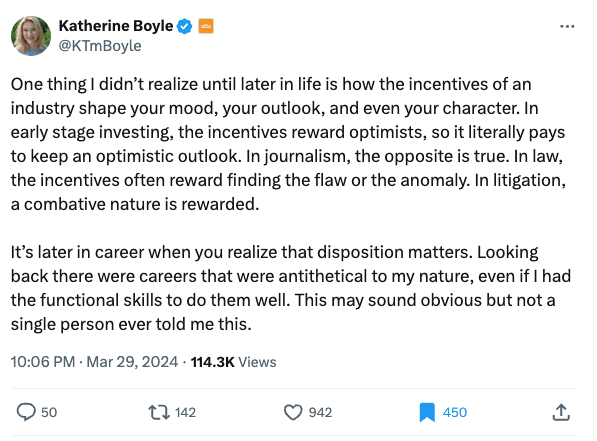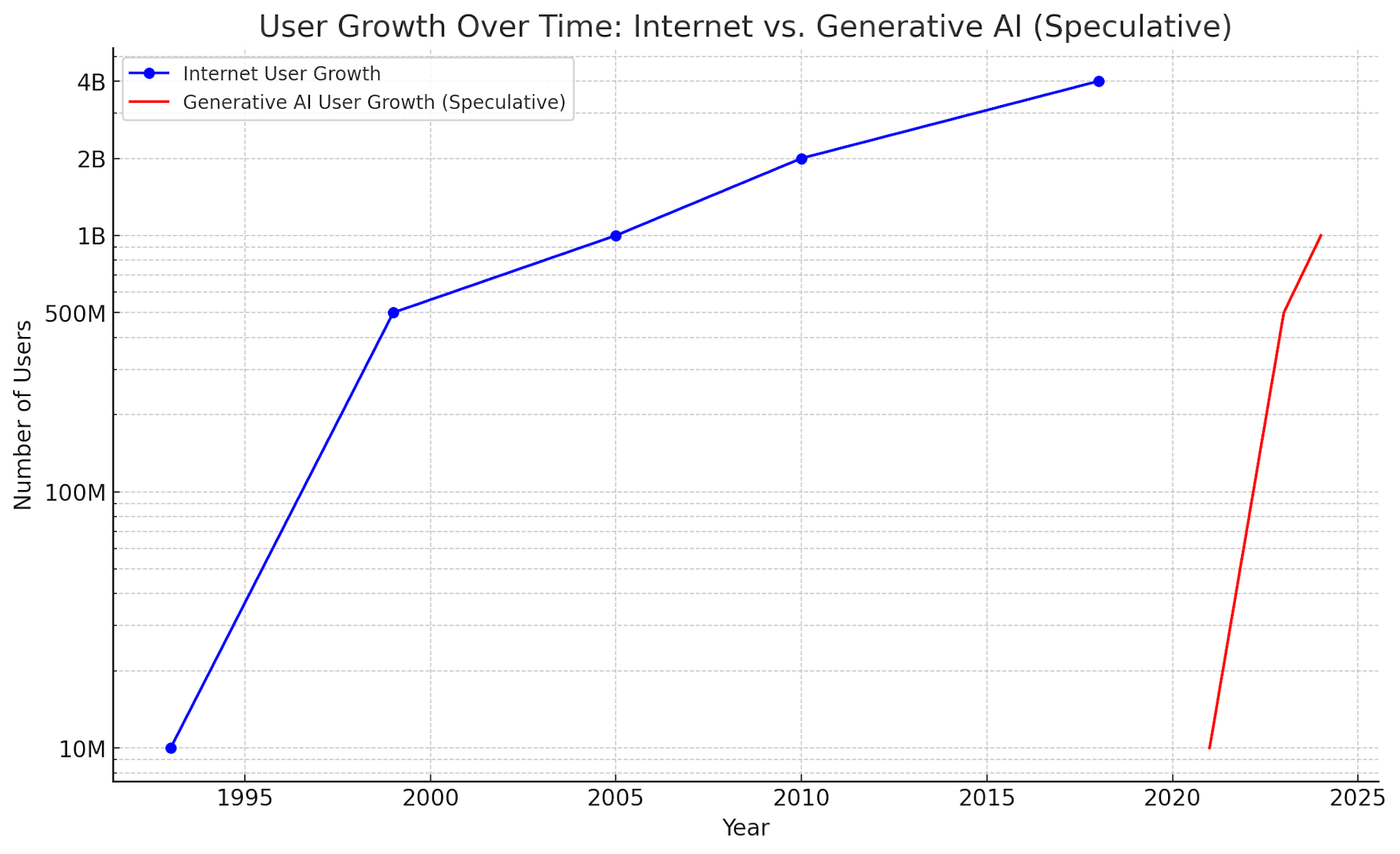
How to think about your AI Strategy in 2024.

Nick Clarke
@NickGreywingPublished on 12th Apr 2024
10 minutes read
Does adopting Microsoft Co-pilot mean that a company has an Artificial Intelligence strategy?
A problem we have seen is that companies are addressing the arrival of the most fundamental shift in our universe by buying software that they are comfortable with but doesn’t have a tangible impact on their business; their ability to cut costs or increase revenue.
This is not true for all, but there is a level of discomfort around implementing AI. And that discomfort, manifests as inaction.
In the world of the blind, the one-eyed man is king, and we have seen that companies are taking safe bets based on advice that does not seek to win, but that tries not to lose. Missing the potential of reliably deploying artificial intelligence.
We have detected a real hesitancy, not only in maritime but in traditional industries more generally, to take a calculated risk to ensure their companies benefit from AI. One of the ways to avoid taking that risk is by buying Microsoft Copilot: AI, without the risk, without the innovation, and without the competitive advantage - but with the branding.
We have heard of the old saying; “No one ever got fired for buying ~~IBM~~ Microsoft.”
In this article, I’ll argue that people should think twice; if buying Microsoft is the only AI Strategy they’re running.
When I saw the Tweet below, I reflected on the Maritime industry.
 Source: Twitter
Source: Twitter
The speed at which maritime moves is slow. And I would argue, it is slow by design.
It exhibits a slow measured approach to take risks, because the business is already risky enough.
The ever present physical risks are under-appreciated by non-mariners. The hyper attention to cost, because the commoditising weight of 32 trillion dollars of cargo moved each year, compresses margins across the value chain. And finally, the incentives work against innovation. Because stability is a more valuable outcome due to the exponential costs of instability.
There is often a debate in tech around whether something is a bug, or a feature?
To some, the glacial pace of change within Maritime might be perceived as a bug, but to most of the world, who value energy, food, infrastructure and stability, it is a feature.
So why am I writing an article on why people should think twice about maintaining a slow pace of innovation?
Innovation is a different role from IT & Digitisation. The right people for the job are different people. The person chasing down an AI strategy that can give you a competitive edge, probably should not be the person maintaining your infrastructure.
It is the difference between Hunters and Farmers.
Sales and Account Management.
Special Forces and Regular Army.
AI innovation leaders and CIOs.
One operates in environments of high uncertainty, unknown counterparts, collapsing timelines, and exponentially high rewards for making the right decisions along with exponentially high losses if they make the wrong decision.
The other operates in known environments, with known counter-parties where an SOP written 5 years ago is still valid, where all the problems that can be encountered have been seen before, and where harmony, stability and predictability guarantee a favourable outcome.
If you are a senior leader, and you have delegated responsibility for embarking on an AI implementation journey to the person you rely on to be the most stable link in your organisation; where No Data = No Deals (In the military we might have said no comms, no bombs, emphasising the importance of data flows to secure resources), you may have made the wrong choice.
So if you internal IT Team are the wrong choice to lead your AI strategy, who is the right choice?
You probably already know them.
They may or may not have a background in software engineering, what they will definitely have is a keen understand of the fundamentals of the commercial operation of your business. You will have already marked them out as someone you want to take on more responsibility in future. Their level of competence may be so high that you feel threatened by how they might outshine you in the organisation (At least this is how I am often struck by high performers when I recruit them, having that feeling that someones mix of intellect and commercial savvy is threat to me is the best indicator of high performance).
I recommend you don’t hire externally. If your company is large enough most likely you already have some one who fits this profile Some people with mediocre backgrounds move into AI Leadership positions in large organisations, with great salaries and a nice role sitting on panels and opining about the future of AI. Believe me, if they were any good they would be running an AI company and going to market with their own business - it is the hottest market in venture capital and easy for people who are competent to get funded.
Given the choice, the right candidate probably also prefers to talk to their phone or computer as opposed to texting or writing emails. One thing I notice in young children is how the dominant way they prefer to interact with technology is through a touch screen or through voice commands. They are a signpost to the future.
You should not have to pay someone a lot of money to fulfil this role. They may very quickly demand a higher salary as a function of the value that the might provide elsewhere, but in the early days the right candidate would most likely take a pay cut to lead AI innovation in your organisation. Working in AI at the moment, is not about getting paid well; it it is about connecting yourself to a firehose of new information, that goes out of date each week, and rapidly navigating on the basis of that information to a commercial advantage for the business. For the right person, the value they accrue in experience introducing AI to your business, will far outweigh any pay rise you can give them. If they expect a bump in pay to refocus on AI, they are the wrong candidate.
If you are a senior leader you can see the potential AI can bring your organisation. Find the right person, have them report to you and empower them to engage with internal stakeholders and vet external vendors with compelling solutions and take small calculated bets.
The AI Leaders of today will be the business leaders of tomorrow.
Our Co-Founder gave a talk recently.
“Put yourself in my position, what should I do as a 42 year old commercial guy who doesn’t have an [software] engineering background?”
…I asked my cofounder Hrishi when we caught up for Bagels (Shout out to Two Man Bagels, Tanjong Pagar!). He said something along the lines of,
“Its [AI] coming, its going to happen whether we like it or not, its going to impact almost every job and if it doesn’t replace you then the people who can use AI will.”
It was a sobering statement.
You might think as the Leader of an AI start up I am well positioned to know whats happening with AI and how its going to impact the industry. To some extent I do, but I know that I cannot be complacent around the impact of AI on the industry and on the business run.
The way we have approached AI as a company focused on building software is to fully pivot our focus into AI. I wrote elsewhere that we have seen sales cycles for our AI tools that are 5X faster then traditional software. For us, it is more important that we develop a competitive advantage in the creation and deployment of AI products. The tailwind is too great.
Whether it is our business or yours, if you position yourself to benefit from AI, before your competitors do, you will win.
Comparably Generative AI is where the internet was in 2005 and growing 3X faster.
I didn’t even have a gmail account in 2005 - that is how early we are.

Data indicates that Generative AI penetration will hit the same pace of deployment in 4 years that the internet reached after 12 years.
But the truth is there is not a roadmap for this, no one has done it before.
You need people who can draw their own map.
When I think about the slow pace of AI adoption, what I see is that the people charged with the adoption and implementation of AI within their organisations do not have the decision making power combined with the commercial experience to identify and de-risk next steps for AI adoption.
All too often, what we see is that the heads of Commercial or Chartering Teams, who by rights should be the Leaders in the adoption and deployment of AI solutions, are some of the biggest proponents against implementing change.
People have genuinely told us in calls that they “…can think faster then AI.”
They have told us that they don’t have confidence that the data will be accurate.
And when we have demonstrated the accuracy of the data Proteus produces, their objections have changed to, “Well, if my team have entered inaccurate data into my VMS/Crewing Software, that means your data will be inaccurate - so how can I trust your data?”
I don’t know, how can you trust AI data, if your people enter the wrong data into your software?
You might have heard the saying "It's difficult to get a man to understand something when his salary depends on his not understanding it.”
What I notice, is that younger team members are heavy proponents for AI and Innovation. They can imagine a future, visualise what it would look like and have a hunger to be part of that change.
I had a meeting with a client who I would describe as high EQ and low ego the other day. He took a look at the solution, and was quite circumspect. Neither expressing interest or disapproval.
What he did next was unexpected…
He entirely handed it off assessing Proteus AI, to one of his detail orientated, young rising stars to take a look at.
The next time we caught up, he outlined how excited his team member was to embark on a project with us. He said something along the lines of "XYZ thought it was awesome, he is really excited.”
And on that basis, he hired us.
AI foundational models are getting better. Claude 3 is better than ChatGPT 4. ChatGPT 5 will likely be better than Claude 3. This speed of development of the baseline intelligence of foundational models will continue to grow. (And since I wrote this LLAMA and Mistral have announced/released new models).
And market share will accrue to those companies that have adopted AI, and to those businesses that haven’t their market share will dissipate.
I am grateful and consider myself lucky to be alive, running a business and to have the presence of mind to be working on how I can implement AI to win in my space. It is a real gift.
One of my friends recommended Bitcoin to me in 2015. I didn’t really take the time to look into it. I was too busy with my “core” business.
I have not made that mistake with AI.

We release every week.
Learn about new tech in maritime, and what we've built as soon as it's live.